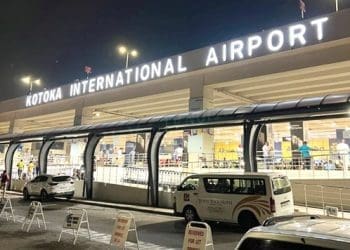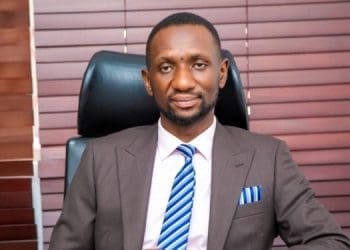The Ghana Catholic Bishops’ Conference has sharply criticised President John Dramani Mahama for what they describe as an “unsatisfactory response” to the country’s galamsey menace, warning that his failure to act decisively risks plunging the nation into an irreversible ecological and social disaster.
According to the Bishops, delegations from the Conference met the President in both January and May 2025 to raise concerns directly about the growing devastation caused by illegal and unregulated mining.
However, they said the responses they received from the Head of State were narrow, focusing largely on economic considerations, while neglecting the environmental, social, and moral dimensions of the crisis.
Matters came to a head on September 10 during the President’s “Meet the Press” session, when he dismissed outright calls for the declaration of a state of emergency in mining zones and along endangered water bodies.
“The hour is late. Delay is betrayal. Now, not tomorrow, not later, is the time to act,” the Bishops warned, adding that the President’s refusal to embrace extraordinary measures suggests a troubling lack of appreciation for the existential scale of the threat.
Galamsey as an existential threat
In their statement, signed by Most Rev. Matthew Kwasi Gyamfi, Bishop of Sunyani and President of the Conference, the Bishops reiterated that galamsey has grown far beyond a routine challenge and must be confronted as a national emergency.
They argued that the illegal mining epidemic now threatens Ghana’s environment, governance, and moral fabric in equal measure, ravaging rivers, poisoning farmlands, destroying forests, and placing public health at severe risk.
Rivers such as the Pra, Ankobra, Birim, Offin, and Ayensu have been turned into toxic waterways laced with mercury and other deadly effluents, making purification almost impossible.
Farmers in mining communities can no longer rely on the land to sustain their families, while the Ghana Water Company continues to battle at great cost to make water barely potable.
The Bishops warned that poisonous substances seep into the nation’s food chain, causing cancers, kidney failure, and neurological disorders.
School children are abandoning classrooms for perilous mining pits, where many lose their lives in collapses that could have been prevented.
For the Bishops, the evidence is overwhelming that the nation is at a tipping point.
A moral and political betrayal
Beyond the environmental devastation, the Bishops accused sections of Ghana’s political and traditional leadership of betraying their sacred trust.
They pointed to disturbing reports that some politicians, chiefs, municipal and district officials, and even members of the security services are complicit in shielding illegal operators for personal gain.
Others, they said, have granted illicit concessions or simply remained silent when bold action was required.
“This betrayal of trust cuts to the very marrow of our national identity,” the statement declared, insisting that leaders who have chosen personal enrichment over the nation’s survival must repent without delay.
They stressed that galamsey is not just a crime against the environment but a grave sin against God, quoting Psalm 24:1 to remind Ghanaians that “the earth is the Lord’s and all that is in it.”
Call for extraordinary action
The Bishops renewed their demand for President Mahama to declare a state of emergency in the most devastated mining zones and around endangered rivers.
They argued that such a declaration would empower extraordinary interventions such as curfews in volatile areas, the securing and reclamation of degraded lands, the dismantling of criminal cartels, and the halting of entrenched administrative corruption that has enabled illegal mining to thrive.
At the same time, they warned that a declaration alone would not suffice.
They proposed a holistic, integrated national strategy that includes revising and enforcing mining laws with tougher penalties, creating specialised courts to fast-track prosecutions, and establishing a permanent corruption-proof task force made up of security agencies, environmental experts, and local authorities.
Justice with mercy
While demanding stronger enforcement, the Bishops urged the government to recognise that many ordinary people are driven into galamsey by poverty and desperation.
They called for sustainable alternatives, including properly regulated small-scale mining zones fortified with environmental safeguards and technical support.
Displaced farmers, they suggested, should be supported with land, credit, and training, while a nationwide afforestation and reclamation programme should be launched to restore degraded lands and provide jobs for the youth.
A call to conscience
The statement ended with an appeal to all segments of society to rise to their responsibilities in confronting the crisis.
To chiefs, the Bishops said: Remember your sacred role as custodians of the land.
To politicians: put Ghana above partisan and personal gain.
To religious leaders: speak prophetically without fear or favour.
And to the security services: act with integrity as defenders of the people, not accomplices in their betrayal.
“This struggle is not merely about law enforcement,” the Bishops concluded.
“It concerns the very soul of Ghana. It is about whether we choose life or death, blessing or curse. With God’s grace, let us choose life—for ourselves, for our children, and for generations yet unborn.”













